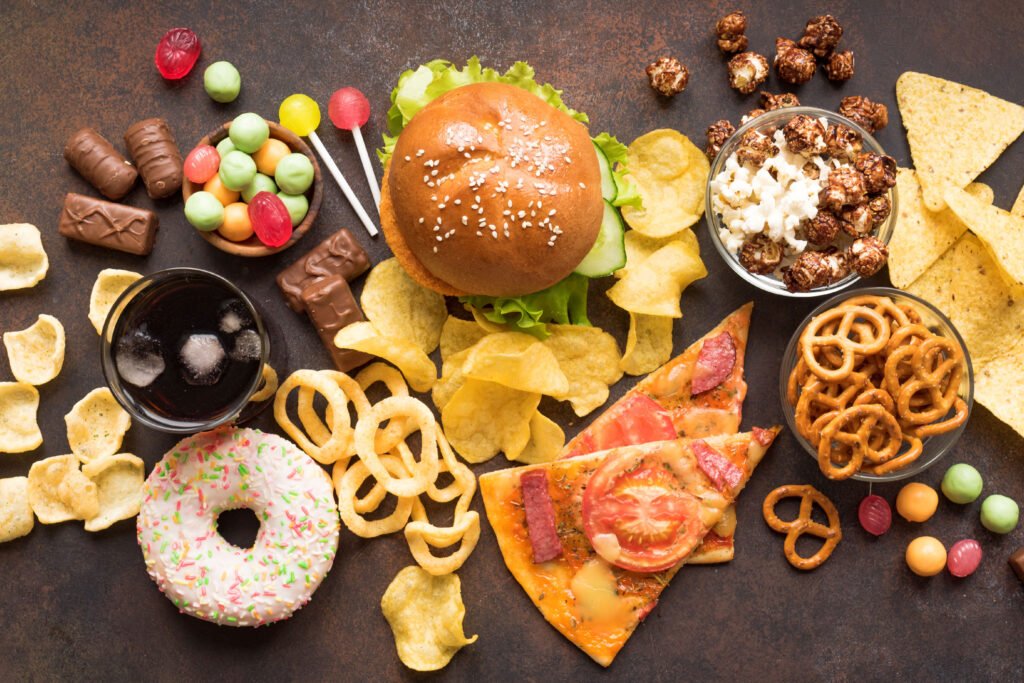In the realm of food and health, there’s a silent enemy lurking on the ingredient list of many foods that you probably eat on a daily basis: trans fat.
Most trans fats, also known as partially hydrogenated oils, are created through an industrial process that adds hydrogen to vegetable oil which causes the oil to become solid at room temperature.
Trans fats are inexpensive and less likely to spoil, so foods made with them have a longer shelf life. This is why all your packaged snacks don’t expire for years as opposed to a bread or cake you make at home. Some restaurants use partially hydrogenated vegetable oil in their deep fryers because it doesn’t have to be changed as often as do other oils. YUCK!
Trans fats have long been recognized as a major contributor to heart disease and other health issues. However, in 2018, the World Health Organization (WHO) called for the global elimination of industrially produced trans fats. They, and other organizations across the globe, began advocating for governments and food manufacturers to eliminate trans fats from the foods we eat, paving the way for a healthier future. The WHO is pushing to complete this effort by 2023 2025 and is doing all they can to support countries in their efforts to introduce and enforce legislation to eliminate trans fats while documenting the numbers of lives saved by this initiative and even creating a certification to recognize countries that have eliminated industrially produced trans fats from their national food supply.
Why is trans fat such a menace to our health? Unlike other types of fats, trans fats have a severely negative impact on cholesterol. Trans fats raise “bad” cholesterol (LDL) which builds up in the walls of arteries making them hard and narrow. It also lowers “good” cholesterol (HDL) which sweeps up excess cholesterol and takes it back to the liver to get flushed out of your body. Consuming trans fats increases the risk of heart attack, stroke, and other cardiovascular issues and increases inflammation, leading to thousands of deaths each year globally.
So, where do we find these harmful fats? They sneak into our diets in more places than you could ever imagine. They’re key ingredients in margarine and vegetable shortening and hide in baked goods like packaged crackers, cookies and cakes and may even be in microwave popcorn, frozen pizza and some non-dairy creamers. And in some countries, almost all fast food and anything fried will include trans fats.
So, if trans fats are so harmful, why are food manufactures adding them to food? It comes down to economics – trans fats are less expensive than other fats and spoil more slowly. Profits over health! But if you’re killing your customers, does it make sense to continue using these products?
What can you do to protect yourself and the health of your family? Start by carefully reading food labels and avoiding products that contain partially hydrogenated oils. Avoid or severely limit eating commercially prepared baked foods (cookies, pies, donuts, etc.), snack foods, and processed foods, including fast foods. To be on the safe side, assume that all such products contain trans fats unless they are labeled otherwise.
If you’re in a situation where foods containing partially hydrogenated oils can’t be avoided, choose products that list the partially hydrogenated oils near the end of the ingredient list. Ingredients are listed in descending order by weight so that the first ingredient listed is present in the largest amount.
To avoid trans fats in restaurants, ask if they use only trans fat-free oils and foods and avoid/limit deep-fried foods and desserts.
Since January 2020, The FDA has banned companies in the U.S to sell foods containing partially hydrogenated oil. They also require trans fats to be listed on nutrition facts labels. However, if a product has 0.5 grams or less of trans fats per serving, companies can market it as having 0 grams of trans fats. So even after being banned, trans fats can still be found in small amounts in some packaged foods and the toll on your health can add up fast.
In addition to the US, many other countries have implemented “WHO best-practice” trans fats policies which includes legislative or regulatory measures that eliminate or severely limit industrially produced trans fats and are in line with the recommended WHO approach.
However, not all countries have implemented these policies and sadly, without these government regulations, most food production companies do not feel the need to make these changes on their own. Additionally, as the WHO has no enforcement capacity, it is up to national and local governments to carry out these actions to eliminate industrial trans fats in each individual country.
Advocating for the elimination of trans fats in country is a beneficial project to take on if these still exist in your country’s food supply. Let the local manufactures know that there are healthier replacement ingredients that are being used across the globe. You deserve better! There are lots of local organizations that are doing health policy advocacy to further this cause. Join them!
The battle against trans fats must be a collaborative effort between governments, private companies, civil society organizations and individuals like us. By working together to eliminate this harmful substance from our diets, we can reduce the burden of cardiovascular disease and pave the way for a healthier, happier future.

